Action Day – Environmental Sustainability
Sustainability is getting more and more important. Climate change and associated environmental crises present the single biggest threat to sustainable development. We are using the 4th of April to showcase how sport organisations take action and promote sustainability.
Climate change requires collective action from everyone, including the football world. On a day-to-day basis, the impacts of climate change play out through extreme and abnormal weather. Heatwaves and floods which used to be “once in a century” events are becoming more regular occurrences, as we saw with wildfires that last year devasted the Amazonian Forest, California and more recently Australia. The pandemic should make us rethink and see us contributing to more sustainability in sports and society. We have gathered a few examples of sustainability initiatives.
Olympique Lyonnais
Olympique Lyonnais has started the Fair Play For Planet labeling process. FPFP claims to be the first label that recognises sports clubs and events with a real commitment to the environment. Two months after the launch of FPFP by former rugby international Julien Pierre, Olympique Lyonnais becomes the first professional football club to commit to this process. By signing up for Fair Play For Planet, Olympique Lyonnais is emphasising its desire to become more sustainably involved as part of a holistic CSR and environmental policy. At the end of February, and in accordance with the health standards in place, COFRAC-certified experts will conduct an audit of the club in the application of the Fair Play For Planet reference framework that covers more than 300 questions, carried out in cooperation with ADEME, the ecological transition agency.
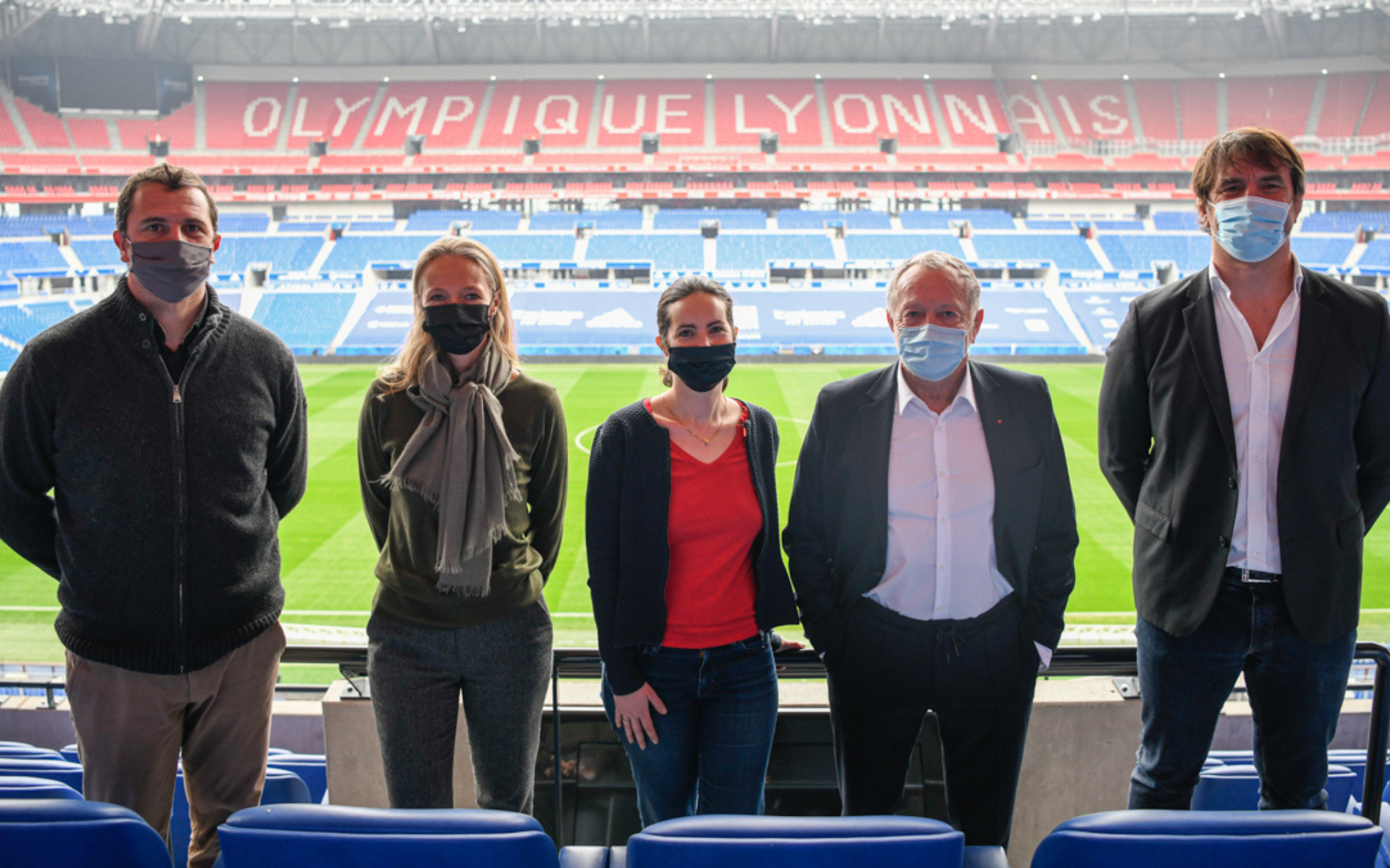
FC St. Pauli
From next season on, FC St. Pauli will play in jerseys of the club’s own production and thus take another important step towards more sustainability in professional sport. FC St. Pauli has been working on the project since 2018 but was also looking for an alternative supplier that produces performance clothing sustainably and transparently and trades fairly. Because no external supplier could fully meet the criteria of FC St. Pauli, the club will take over the production itself in the future. Following the motto “You have to do everything yourself”, FC St. Pauli’s claim is to produce the most sustainable team sport collection in the world with the “DI!Y” brand. The club is responding to the specific wish of its members to continue to pursue the issue of sustainability consistently.
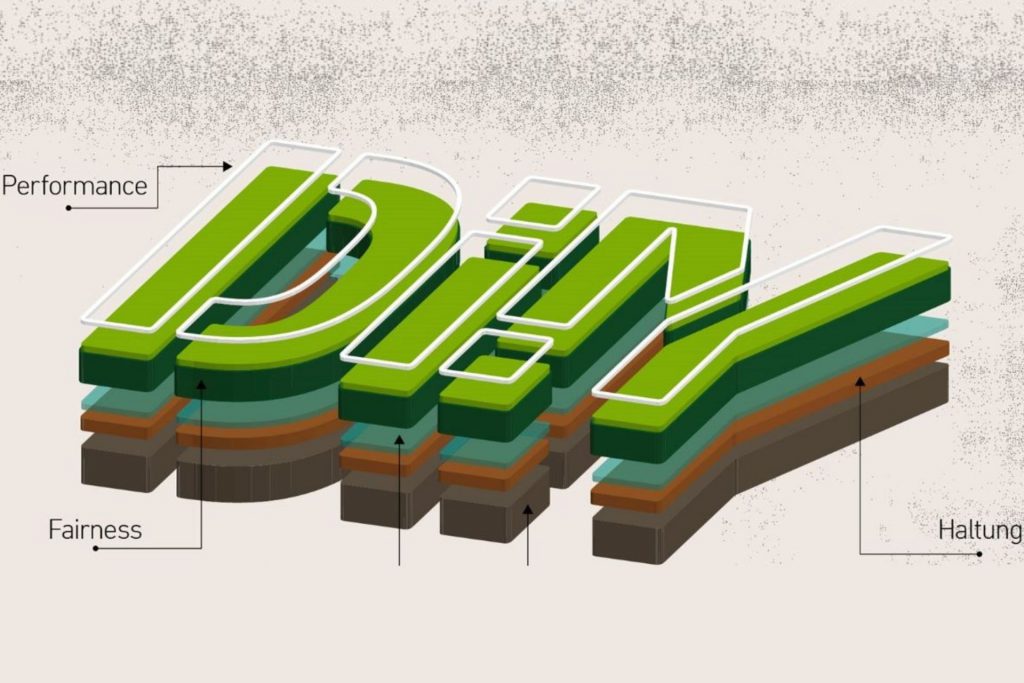
Saints Foundation
Southampton Football Club joined the UNFCCC’s Sports for Climate Action initiative as a signatory to the Sports for Climate Action Framework. The Sports for Climate Action initiative calls on sporting organisations to acknowledge the contribution of the sports sector to climate change and our responsibility to strive towards climate neutrality for a safer planet.
As part of its commitment to ensuring a sustainable future for the club, the fans and the community, Southampton launched its sustainability strategy, The Halo Effect which outlines the club’s commitment to live up to our environmental, corporate, fan and social responsibilities, which aligns with the goals of the Sports for Climate Action Framework. By signing the Framework, the club has demonstrated its commitment to playing its part to ensure the sports sector is on the path to a low-carbon future.
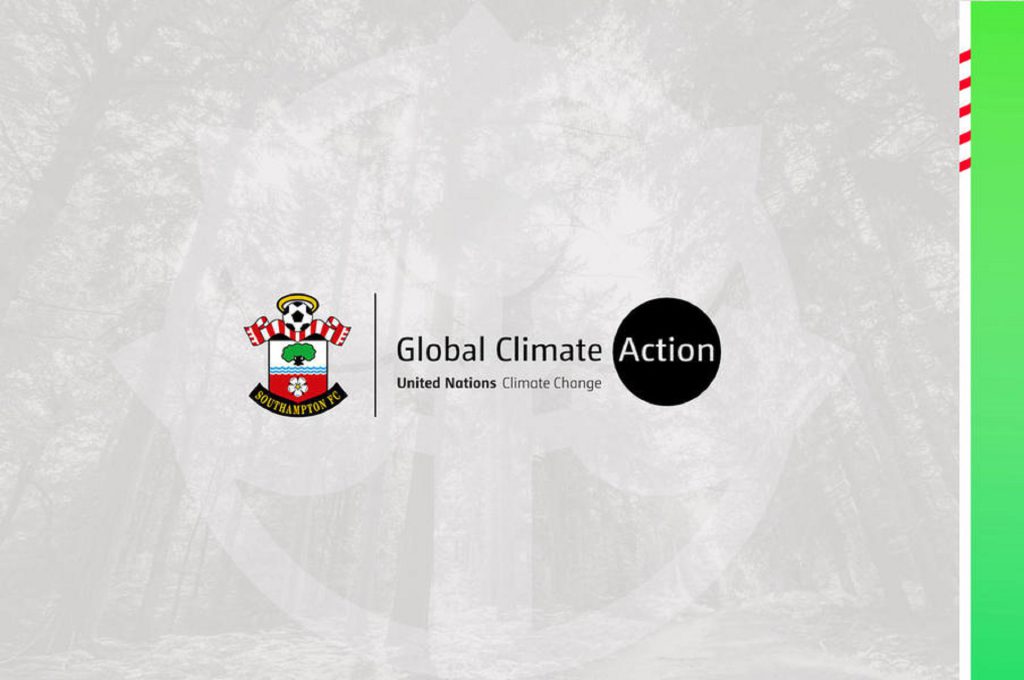
SDG Striker
SDG Striker is a project coordinated by Ecoserveis (ECO), a non-profit organisation specialised in environment and energy and funded by the ERASMUS+ Programme of the European Union. Its goal is to increase the organisational capacity for Good Governance in grassroots sports organisations by assisting them to implement and communicate the Sustainable Development Goals (SDGs). This will be achieved through ad hoc action at the local level so they can align themselves with European national and local public policy on the SDGs and by developing a joint understanding about best practices before, during and after being tested, and assess their potential for replication across the national Federation and beyond national borders. For the project, ECO is partnering up with five partners from five European countries. The Energieinstitut an der Johannes Kepler Universität Linz and EFDN are technical partners. The Portuguese Football Federation (FPF), will implement a pilot on PV potential and feasibility on sport facilities, the Norwegian Football Federation (NFF), will implement a pilot on microplastics, and the Scottish Football Association (SFA), will be in charge of the coordination of the pilot on reducing energy bills in facilities and vulnerable families.
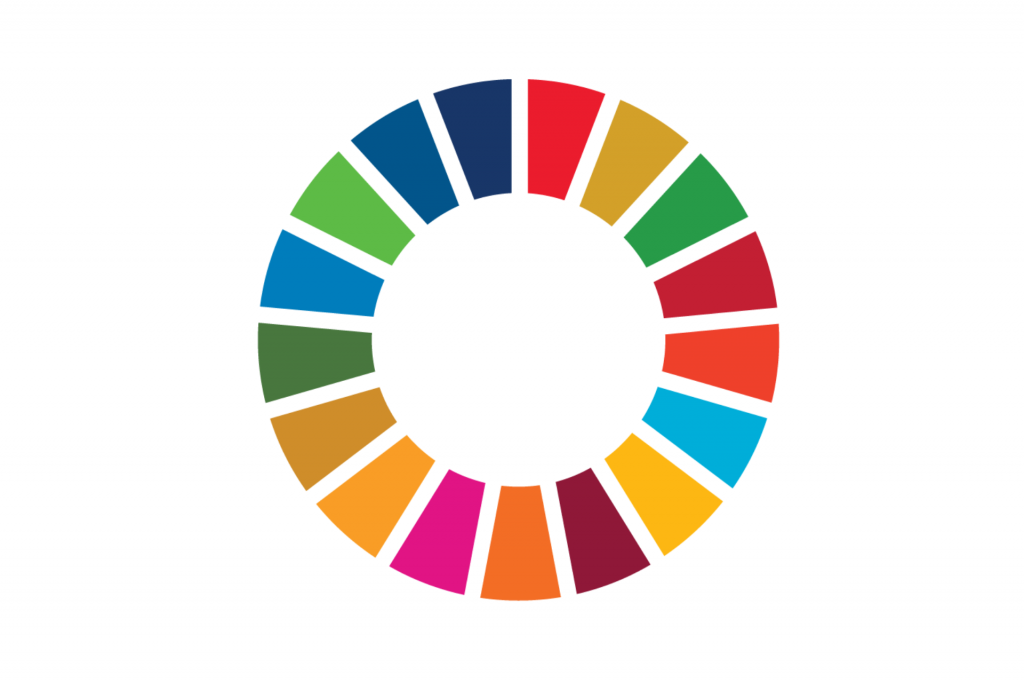
LFC Foundation
Liverpool FC is launching a brand-new initiative which illustrates how the club is contributing to a more sustainable future. The Red Way is an easy way to understand how the club is contributing to a better future for Reds to come by pulling together all of its sustainability-related activity under one initiative. The club’s contributions to sustainability centre around three distinct pillars:our people (reflecting how the club enables the people it works with to broaden their skills and knowledge, and make a positive difference), our communities (the extensive work undertaken by the club’s Red Neighbours initiative and LFC Foundation, both locally and further afield) and our planet (how the club is making a positive difference in the way it impacts the environment). LFC has also become a signatory to a UN initiative called Sports for Climate Action, which aims to unify sports organisations to play their part in creating a more sustainable future by adhering to five key principles on climate action.
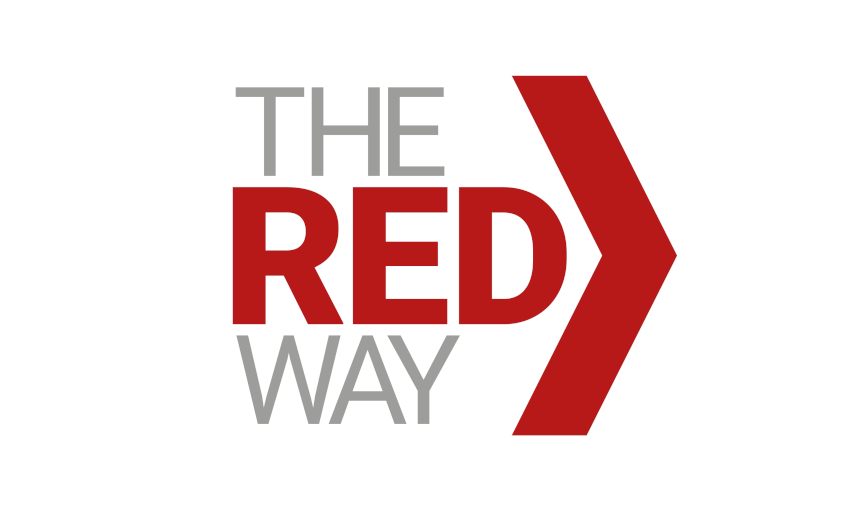
Forever Green
Forever green is the sustainability platform that uses the power of the most popular sport on the planet to help saving it and it is to make the millions of fans of today our allies to fight against climate change tomorrow. This platform invites companies to showcase their actions to contribute to the future of the planet and pursues the creation of conscience to fight for climate change. In the past, Real Betis has been part of other initiatives such as being the first football to join the “Climate Neutral Now” initiative from United Nations. This has seen Betis compensate for its carbon emissions in 2019 and also join “The Climate Pledge” initiative by Amazon. Rafael Muela Pastor will present the programme at the 15th EFDN Conference.
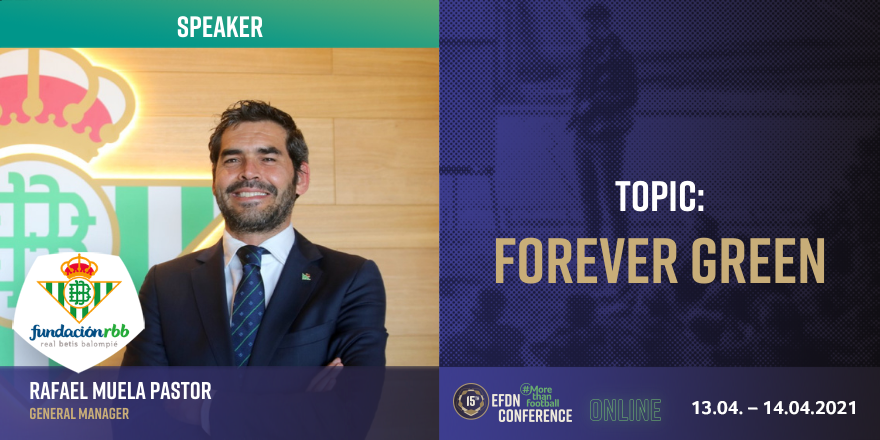
Greenfoot
The Greenfoot project will develop and implement a community-based financing scheme for renovating football buildings including stadiums, practice facilities and related buildings (e.g. team headquarters, fitness centres) with energy efficiency and renewable energy measures. The central social innovation of GREENFOOT is to develop creative crowdfunding investment packages that allow sports fans and community members to partner with their favourite clubs to improve energy use, fight climate change and contribute to a cleaner local environment. The project includes international football organisations as partners, a strong link with UEFA that EFDN looks forward to collaborating with. The concept is to finance football building energy efficiency renovations and renewable energy installations through a crowd-funding scheme that propels Europeans to become active participants in the energy transition through their love of football. Read more about the Greenfoot programme here.

ISTANBUL BAŞAKŞEHIR
Istanbul Başakşehir continues its afforestation efforts within the scope of the “We make it Green” project, which the club launched at the beginning of this season. Between 15-25 March, they are planting 5000 more seeds as a results of the contributions of their fans. The Turkish club continues to emphasise the importance of afforestation in combating the climate crisis with their green alternative jerseys that the players wear in the 2020-21 season and also continues to turn every green jersey purchased from Başakşehir Store into a tree in nature.



